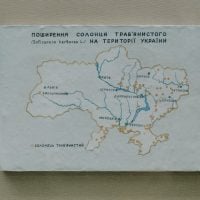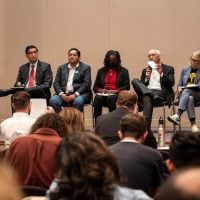Deadline: 01-Aug-2025
The Cambridgeshire Community Foundation is seeking grant applications for its Dementia Carers Fund to support charitable projects across Cambridgeshire and Peterborough that provide relief, respite and support to full-time unpaid carers.
Aims
- The key aims of the fund are to:
- Give caring support to unpaid carers who need to attend appointments of their own (e.g. haircuts, doctors), and alleviate any worry about leaving their loved one.
- Encourage unpaid carers to recharge and to stay healthy themselves, by supporting them to take self-care breaks.
- Support volunteer befriender initiatives.
Funding Information
- The minimum grant size for organisations is £1,500 and the average is £4,500, but each fund specifies its own range of available grant sizes.
Eligibility Criteria
- They only fund community-focused, not-for-profit organisations, which must be legally registered if their income is above £5,000. This includes the following:
- Registered, exempt, and excepted charities
- Charitable incorporated organisations (CIOs)
- Religious organisations if the project benefits the wider community and does not include religious content
- Parish and town councils, village halls, and parochial church councils
- Community interest companies (CICs), Social Enterprises and Companies Limited by Guarantee. CICs, Social Enterprises & Companies Limited by Guarantee are expected to have been established and running for at least one year before applying.
- Co-operatives and community benefit societies (formerly industrial and provident societies)
- Schools
- Sports clubs that are either community amateur sports clubs (CASCs), affiliated with a national governing body (e.g., Badminton England) or have an income under £5,000.
Ineligibility Criteria
- Organizational structures not listed above, or projects which are not charitable in focus
- Activities or projects which have already taken place
- Sponsored events or fundraising activities
- They cannot usually fund grant-making bodies or activities
- Improvements to land/buildings that are not open to the general public at convenient hours
- Projects promoting political activities or lobbying for causes
- The practice of religion or any projects that actively promote religion, a particular belief system or indeed the lack of a belief. This is due to such projects excluding some people from participating based on religious grounds.
- Animal welfare projects
- Overseas travel
- Statutory obligations i.e., activities that replace government funding
Application Requirements
- All organisations are required to have the following documents, which should be regularly and recently reviewed, signed, and dated by a member of your management committee:
- A signed governing document specific to your organisation, such as articles of association or a constitution, which must confirm that you are operating not for profit. It must also contain a dissolution clause which outlines that your assets, after the satisfaction of any debts and liabilities, will be distributed to charitable organisations with similar aims and objectives to your organisation, should your organisation cease to operate.
- Accounts for the past year. If you are a small unincorporated group, they will accept an income and expenditure document or something similar. If your organisation is less than a year old, please provide a list of your income and expenditure to date.
- A recent bank statement or paying-in slip, from the last 3 months, to verify your organisation’s banking details. This is required as evidence of the existence of the account. The document must show the bank name and logo, the account name, sort code and account number. Screenshots of online statements will not be accepted.
- Names of three independent/unconnected management committee members/trustees/directors. To ensure your organisation has good governance and fair decision-making, they ask that management committee members/trustees/directors are independent/unconnected. They also require the names of two cheque signatories (these may be the same management committee members already stated but the signatories must be independent of each other/unconnected). As described by the Charity Commission, a connected person means family relatives or business partners of a trustee, as well as businesses in which a trustee has an interest through ownership or influence. The term includes a trustee’s spouse or unmarried or civil partner, children, siblings, grandchildren and grandparents, as well as businesses where a trustee or family member holds at least one-fifth of the shareholding or voting rights.
For more information, visit Cambridgeshire Community Foundation.









































